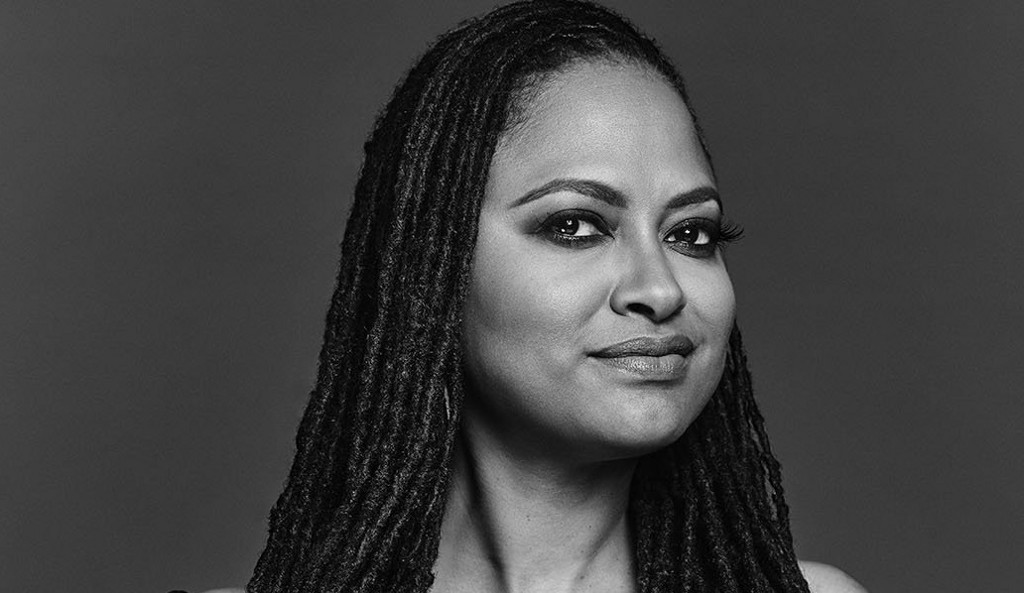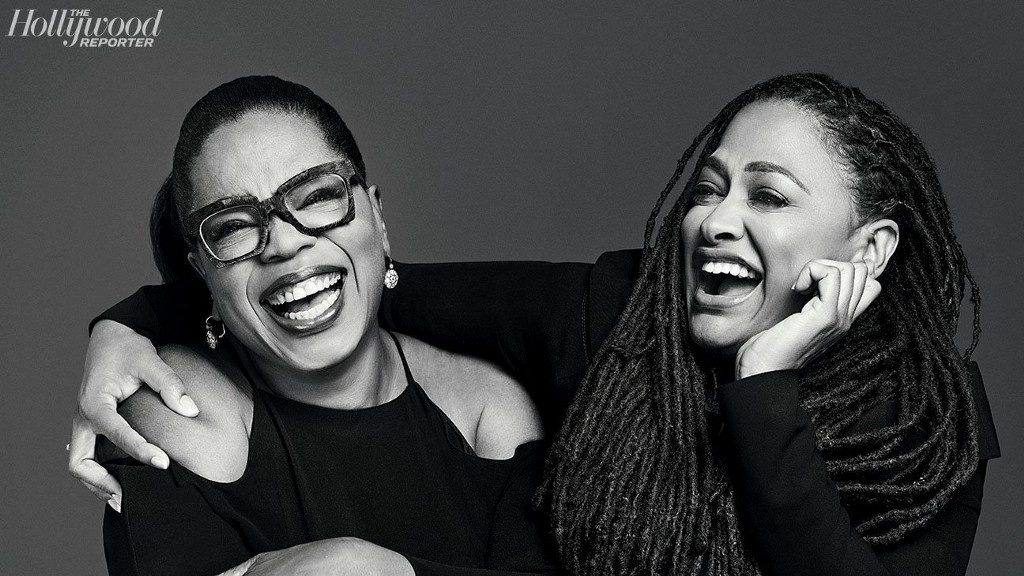
“Selma” director Ava DuVernay cannot be stopped. No one is going to tell her what to do. And thank goodness. Not only does the director have an abundance of projects coming up, but she’s also fighting the battle for inclusion (not diversity) in entertainment, and becoming one of Hollywood’s most powerful women.
In anticipation of her series “Queen Sugar” premiering on OWN on September 6, DuVernay and media mogul Oprah Winfrey, who runs OWN, sat down with The Hollywood Reporter for an in-depth interview on Hollywood, race, and being women in the business.
As is turns out, Winfrey learned to use the word “inclusion” rather than “diversity” from DuVernay. “I used to use the word ‘diversity’ all the time,” Winfrey told THR. “‘We want more diverse stories, more diverse characters …’ Now I really eliminated it from my vocabulary because I’ve learned from her that the word that most articulates what we’re looking for is what we want to be: included. It’s to have a seat at the table where the decisions are being made.”
Winfrey has been pretty busy herself, but she hinted that, though she’s got a lot going on, after her appearance in the OWN series “Greenleaf,” the upcoming HBO film “The Immortal Life of Henrietta Lacks,” and DuVernay’s $100 million Disney film “A Wrinkle in Time,” that might “be it for me for a while.”
But DuVernay was the one to get really candid in the piece. As the first woman of color to be given that big of a budget for any film, DuVernay is breaking barriers, but she has a lot to say about being labeled or put on a pedestal over such things. Here are some of our favorite DuVernay highlights from the interview. For the entire piece, head over to THR.
The budget for “A Wrinkle in Time” didn’t factor into her decision to do the project
“It [money] doesn’t figure into my storytelling. The way I tell a story is the same at $100-plus million as it was for my first movie [‘I Will Follow’], which was $50,000. I have more tools to do it and more planks to build the house now, but ultimately if the story is not solid, it doesn’t matter how much money you have. So the headlines don’t really impact what I’m doing in the room as I work with actors and my collaborators.”
She doesn’t feel pressure
“‘Pressure’ is the wrong word. I’m in a space where I’m able to do the things that I want to do and the start of that was doing it on my own and working independently without permission. Even though I have more folks, more money, and more infrastructure around me now, I made a decision [long ago] to work from a place of protecting my own voice by collaborating with people who nurture and value that — and not trying to spend my time knocking on doors that were closed to me, begging people for things that put me at a disadvantage because they had it and I didn’t.”
No doors are closed to her
“No, no one’s going to stop me from doing what I want to do; I just have to figure out a way to do it that might not be the easy route that my counterparts who don’t look like me and identify as I do have. They have a bit of an easier time of it, an easier road, but it doesn’t mean I can’t do it. It may just take me a bit. Part of the challenge that I find when I enter these conversations with journalists is that [you’ve] thought about it in a way that society thinks about it: ‘the plight of the woman filmmaker,’ ‘the plight of the black artist,’ ‘the plight of whoever is on the outside.’ But if you receive it and treat it as a plight, that starts to manifest in you and your work, and it affects your creativity.”
She’s learned a lot about how Hollywood works versus the indie scene
“There’s a big difference between the independent film world and the Hollywood film world, and I don’t know that I understood that until I got into certain rooms and people’s faces go blank when you talk about Sundance. In the independent world, Sundance is the king of the hill, but there’s another realm of studio people and folks who just think, ‘That’s something over there,’ and the two don’t necessarily connect. We’re seeing much more of it now, but the first folks who have been able to translate independent-film-world success into some mainstream success have not been women or folks of color. So they’re just two separate worlds [just as] mainstream Hollywood and black Hollywood are two different worlds. There are people I’ve brought up in rooms as possibilities for crew and cast, and they’re huge stars among African-Americans, and folks at studios have no idea who they are. But then I can’t tell you Latino stars or stars from China. It’s very segmented, and it’s unfortunate because talent and creative energy should be something that’s intersecting, and the more kinds and colors of people there are, the more robust these projects they’re offering will be.”
She doesn’t analyze the Academy or awards season
“My experience with that world, through ‘Selma,’ was what it was. [‘Selma’ scored a best picture nom, but DuVernay and her star, David Oyelowo, were snubbed.] It helped me understand what I value, and my times of greatest joy had nothing to do with any of that business; it had to do with the times that I shared the film with real people and with the people who walked up to me in airports and on the street to tell me what it meant to them and their families. As I went through the awards circuit, I found it was quite a contrast between that space where people congregate around films for reasons of story and not of business and accolades. So I’ll leave the analysis of [the Academy’s moves] to someone else and wish everyone well.”
For more from Winfrey and DuVernay, head over to THR.







